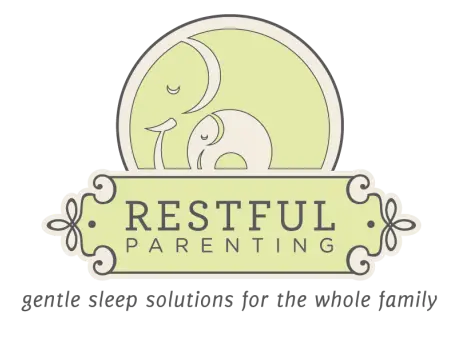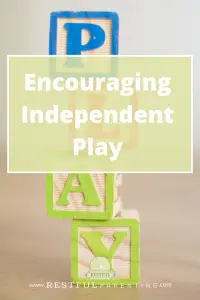Does your child play independently? What is independent play and why is important? As well, we’ve got some strategies to get started.
Before we jump in though, is having your little one play on their own something that you are encouraging or something that makes you feel guilty?
There are many, many benefits to allowing our children the space and time for independent play. Children who are given the opportunity to play by themselves are more prepared for school, have better fine and gross motor skills, have an increased attention span, learn important social skills and builds their confidence. Play helps children become better adjusted adults!
If your child struggles with spending any time on their own, that’s okay. You can start small and build on it. Take small steps and help them adjust to longer and longer increments on their own. They can do it they may just need a little practice and some gentle reminders from you.
1) A great way to start is by taking time to first connect with them and fill their cup.
Spend some time playing or snuggling with them and then set them up for play on their own. Explain to them what is expected of them “hey buddy, mommy is taking some time and you get to play by yourself for a little bit.” Set a timer and tell them when it rings, you’ll come back and play with them again.
At first you may need to help with some suggestions – you can sit and read some books, you have a bin of blocks or you can play with your cars/dolls/figurines. Don’t overwhelm them with choices but offer a few ideas and then let them go. As you progress through more and more time, don’t offer suggestions on what they can do, instead ask them “What would you like to do today or what are a few things you could do?”
Sit with your coffee, your own book whatever and if your little one comes to you ask if the timer has gone off and redirect them back to their space. It’s important to remember that for a little one that has never played on their own, this is going to take practice. You may have to remind them a few times in the beginning but if you keep at it, they will learn.
2) Make it part of the routine.
Just like we suggest having one on one time with each child as a dedicated time in the routine, independent play time needs to be in there too. Toddlers and preschoolers love the security and predictability of routines. They are an important piece of their development that they need to thrive. Carve out that time for them.. and you.
3) Recognize what your child is capable of doing and stretch it a little.
For example, if your child can handle 5 minutes of independent play work on ten, then fifteen then twenty and keep going.
4) Take the time when they are playing to fill your own cup and don’t feel guilty.
It’s so good for them and a mom who can take that time for themselves and fills their own cup, will have more to fill for their child.
5) You can start allowing your little one some time on their own from an early age.
When they are on their play mat, sit on the couch or empty the dishwasher instead of being right beside them. If they are napping in their own space and they wake up happy, give them a few minutes to hang out. Those little pockets of time throughout the day all add up and will help in the long run.
If you find yourself struggling with sleep and parenting challenges and need help digging into the problem and coming up with solutions- we are here to help! We have helped many families (read what they have to say here) get the sleep they need! Check out our services page and contact us for a free consultation to find out how we can help! We also offer many tips on our Youtube channel and our podcast!
Meet Jennifer Taun
MSW, RSW – Partnering with Restful Parenting

We are excited to introduce Jennifer Taun, MSW, RSW, as a valued partner with Restful Parenting. Jennifer will be providing consultation and supervision support for our team, working closely with Elisa and Pam to ensure our clients receive comprehensive, effective, and compassionate care.




